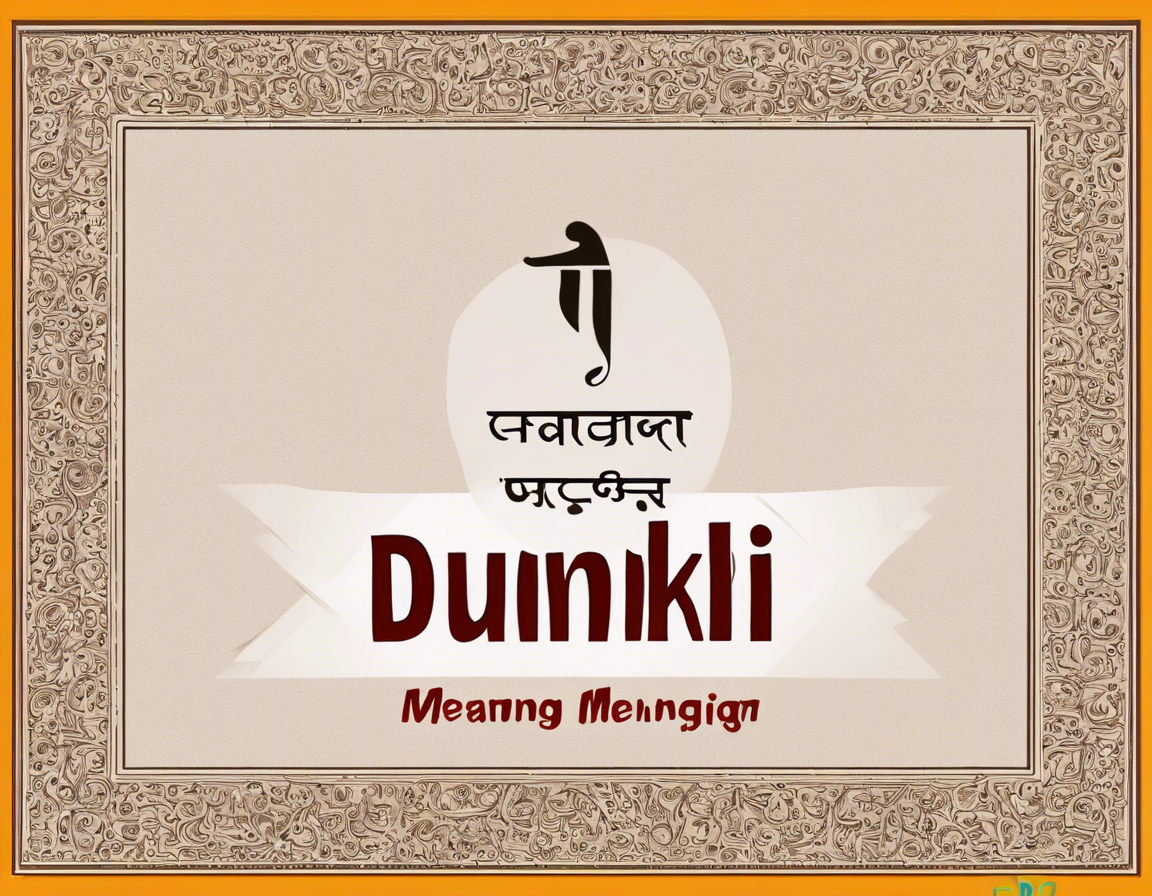In the vast and diverse linguistic landscape of India, the Hindi language stands out as one of the most widely spoken languages. With over 400 million native speakers, Hindi plays a crucial role in communication, literature, media, and everyday interactions in the Indian subcontinent. As with any language, Hindi has its unique vocabulary and expressions that reflect the culture, traditions, and nuances of its speakers. One such interesting and multifaceted term in Hindi is “dunki”.
What is Dunki in Hindi?
Dunki is a colloquial term in Hindi that is used to describe a situation where someone, usually a child or a pet, is lifted and then playfully dropped or dipped, eliciting squeals of joy, surprise, or excitement. The term is often associated with a playful act of lifting someone, particularly a child, by their arms or waist and gently dropping them back down, often accompanied by playful sound effects like “dunk”.
Origins and Usage of Dunki
The origins of the term dunki can be traced back to the onomatopoeic nature of the word itself. The term is derived from the sound “dunk” that is produced when the playful act of lifting and dropping someone is carried out. This action is symbolic of playfulness, affection, and bonding, and it is often seen as a form of endearment in Hindi-speaking households.
In a broader sense, dunki is not just limited to physical actions but also encompasses the idea of playful teasing or pranks that are meant to evoke laughter and joy. It is a gesture of affection and closeness, often seen between family members, close friends, or even pets and their owners.
Cultural Significance of Dunki
In Indian culture, the concept of dunki goes beyond its literal meaning. It is seen as a way to express love, care, and affection towards younger ones. The act of dunking someone playfully is often accompanied by laughter, giggles, and a sense of shared happiness. It is a way to create memories, strengthen bonds, and foster a sense of closeness within relationships.
Psychological Impact of Dunki
From a psychological perspective, the act of dunki can have several positive effects on individuals. It can create feelings of trust, security, and happiness, especially in children. The physical touch and playful interactions involved in dunking can release oxytocin, also known as the “love hormone”, which promotes bonding and emotional connections.
Etiquette and Consent in Dunki
While dunki is primarily viewed as a playful and affectionate gesture, it is essential to consider the importance of consent and boundaries, especially when it comes to physical interactions. It is crucial to ensure that the person being dunked is comfortable with the act and that it is done in a safe and respectful manner. Communication and mutual understanding play a vital role in maintaining the positive essence of dunki without causing discomfort or harm.
FAQs about Dunki in Hindi:
Q1: Is dunki limited to children, or can it be done with adults as well?
A: While dunki is commonly associated with children, it can also be done playfully with adults as long as there is mutual consent and both parties are comfortable with the interaction.
Q2: Are there different variations of dunki in different regions of India?
A: Yes, the concept of dunki may have variations in different regions based on local dialects and cultural practices, but the essence of playful lifting and dropping remains consistent.
Q3: Can dunki be considered a form of physical affection in Hindi-speaking households?
A: Yes, dunki is often seen as a way to express physical affection and closeness, particularly within families and close relationships.
Q4: Are there any safety precautions to keep in mind while performing dunki?
A: It is essential to ensure that the person being dunked is comfortable and willing to participate. Safety should always be a priority to avoid any accidents or injuries.
Q5: What is the cultural significance of dunki in Indian households?
A: Dunki is viewed as a playful and affectionate gesture that fosters bonding, creates memories, and brings joy within relationships, especially among family members.
In conclusion, dunki is not just a term in Hindi; it embodies a sense of playfulness, affection, and closeness that transcends linguistic boundaries. Understanding the cultural context and significance of dunki sheds light on the intricacies of human relationships and the diverse ways in which love and emotion are expressed. So, the next time you hear the word dunki, remember the laughter, joy, and connection it represents in the vibrant tapestry of Hindi language and culture.

